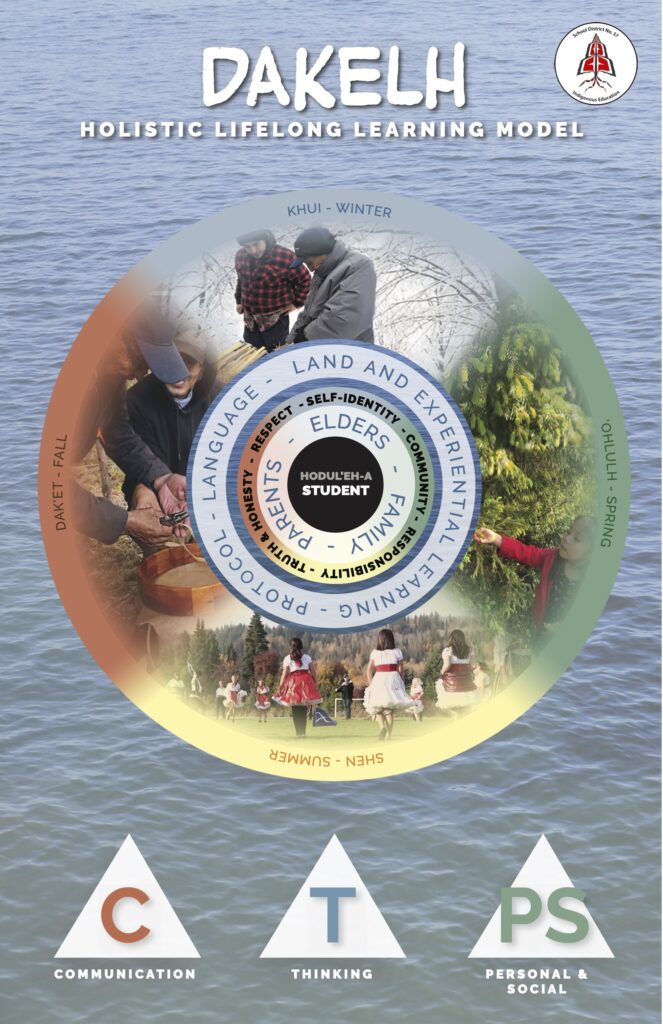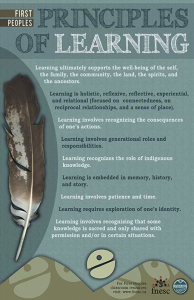
I am grateful for the First Peoples Principles of Learning and how these principles were created so that as educators we can share Indigenous values and lesson in teaching and learning. I think that these principles are so incredibly important to include as educators as they allow us to approach topics of Indigenous knowledge and bring it into the education system in appropriate and inclusive ways.
The middle circle in the Dakelh model states: truth and honesty, respect, self-identity, community and responsibility. This stands out to me because it shows the vaules of well-being and inclusion, not just with student but with anyone and everything that are connected to them. This resonates with me because while we spend 6 hours/ 5 days a week with our students there are still several other influences from people and places that impact our students. They have lives and interactions that are then brought into the school and should be acknowledged and included in our education and teachings.
This model also connects to the First Peoples Principles of Learning starting right at the first principle, “learning ultimately supports the well-being of the self, family, the community, the land, the spirits, and the ancestors.” This is just as important to me as it represents the inclusion and diverstity that makes up each and every student. They are all individual beings, but are connected in the most important and unique ways. As an educator I am to acknowledge those connections and build on them.
These principles also include important life skills that the students will be able to use not just in the classroom and school community but at hone and in the world as well. They focus on teaching and learning skills that are beneficial for future interactions and skills that students will need to have. These principles also teach social and emotional learning that is so beneficial for ALL student in the classroom.
These principles are not just for students with Indigenous backgrounds or heritage, but for all of us to learn from. They are a starting point for everyone to recognize a more holistic and inclusive education and teaching method and how we as educators and members of the community to work together and build on Indigenous knowledge.
A few links to start with or refer to:
First Peoples Principles of Learning – Poster – from FNESC
http://www.fnesc.ca/wp/wp-content/uploads/2015/09/PUB-LFP-POSTER-Principles-of-Learning-First-Peoples-poster-11×17.pdf
First Peoples Principles of Learning – Blog – by Jo Chrona from FNESC
https://firstpeoplesprinciplesoflearning.wordpress.com/
Learning First Peoples Classroom Resources – from FNESC
http://www.fnesc.ca/learningfirstpeoples/
